Continuing Education Course
Wednesday, February 4, 2026 - Wednesday, March 4, 2026
6:30 pm to 8:30 pm
Online
via Zoom (link will be sent via email the day before the event)
Postponed Until January 2027: Relational Ghosts: Personality Types and the Legacy of Loneliness
Instructor: Jamie Smith, MA, B.Ed.
Instructor: Gretchen Hermes, MD, PhD
Professional Registration
$300.00
Student/Trainee
$50.00
CME/CE Certificate fee
$20.00
Registration Coming Soon
In her seminal text Psychoanalytic Diagnosis, Nancy McWilliams outlines three levels of personality organization—neurotic (or "normal"), borderline, and psychotic—and identifies nine primary character types: psychopathic (antisocial), narcissistic, schizoid, paranoid, depressive/manic, masochistic (self-defeating), obsessive-compulsive, hysterical (histrionic/borderline), and dissociative. This course offers an in-depth exploration of these character structures, drawing on McWilliams and other foundational psychoanalytic thinkers. Clinical case material—including examples from literature and film—will be used to illuminate the diagnostic and experiential dimensions of each type. A central focus of the course will be on the developmental roots of personality, particularly how experiences of social isolation, loneliness, and neglect are thought to shape character formation. To deepen this inquiry, we will engage with contemporary neuroscience, developmental case studies, and selected animal models. Through this interdisciplinary approach, participants will gain a richer understanding of the relational foundations and existential concerns that underlie personality organization and character structure. This course will center dialogue and the sharing of diverse psychodynamic perspectives. Like a Rorschach image, McWilliams’ text will evoke clinical and theoretical reflections in us as clinicians and students of psychoanalytic thinking and sharing these thoughts and ideas will help our understanding and clinical practice.
Learning Objectives
- Describe and differentiate the three levels of personality organization—neurotic, borderline, and psychotic—as conceptualized by Nancy McWilliams and related psychoanalytic theorists.
- Identify and characterize the nine primary personality types (psychopathic, narcissistic, schizoid, paranoid, depressive/manic, masochistic, obsessive-compulsive, hysterical, and dissociative) with attention to their developmental origins, intrapsychic dynamics, and behavioral patterns.
- Analyze clinical material—including vignettes from literature and film—to illustrate personality structure and organization, recognizing patterns of defense, affect regulation, and relational style.
- Evaluate the impact of early experiences of loneliness, neglect, and disrupted attachment on personality development through integration of psychoanalytic theory, developmental psychology, and neuroscience.
- Develop psychodynamic formulations that incorporate both structural and characterological understanding, with an emphasis on relational and existential dimensions.
- Cultivate clinical empathy and nuance in working with diverse character presentations, particularly in cases marked by isolation, defensive withdrawal, or difficult-to-reach internal worlds.

